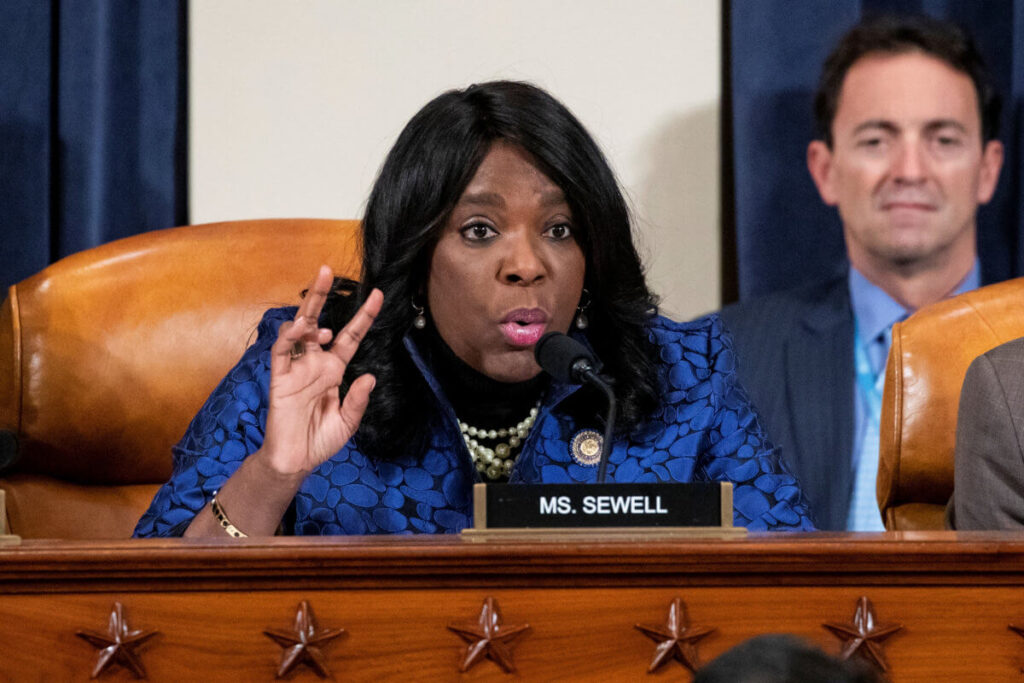WASHINGTON— A Congressman from Ohio said on Sunday that President Donald Trump has signed into law H.R. 991, the bipartisan extension of the Caribbean Basin Economic Recovery Act (CBERA).
Republican Congressman Brad Wenstrup, of Ohio, and Democratic Congresswoman Terri Sewell, of Alabama, sponsored the legislation, which extends the expiring Caribbean Basin Trade Partnership Act (CBTPA) through 2030.
“This extension of the CBTPA is a big deal for workers and employers in southern and southwestern Ohio, as well as for America’s economic and diplomatic relations with our neighboring countries,” Sewell said in a statement.
“I’m grateful to President Trump for signing this legislation into law and to Congresswoman Sewell for her cooperation on this important bipartisan initiative,” he added.
Late last month, Sewell, who represents Alabama’s 7th District, applauded the unanimous passage of the bipartisan bill in the US House of Representatives, saying that the CBTPA is “a preferential trade agreement that provides for duty and quota-free access for apparel products manufactured in designated beneficiary Caribbean Basin region countries.”
She said CBTPA also requires that Caribbean Basin countries use US formed yarns, fabrics and thread.
“As the lead sponsor of the legislation to reauthorize the Caribbean Basin Trade Partnership Act, I am thrilled that Congress is taking action on this issue before the program expires at the end of the month,” Sewell said. “CBTPA is such an important economic tool for the United States and each of our partner countries, and it is critical to our continued diplomatic relationships in the Caribbean Basin.
“The bipartisan effort to reauthorize this program will allow us to export more American-made goods and strengthen Western supply chains, while contributing to economic development and job creation in Haiti and other countries throughout the Caribbean Basin region,” she added.
Together, CBERA and CBTPA are collectively known as the Caribbean Basin Initiative (CBI).
Sewell said these two acts work together to facilitate the development of 17 independent countries of the Caribbean Basin region.
For these two preferential trade programs to be effective, she said both CBTPA and CBERA must be authorized.
Eligible CBERA countries include Antigua and Barbuda, Aruba, the Bahamas, Barbados, Belize, the British Virgin Islands, Curacao, Dominica, Grenada, Guyana, Haiti, Jamaica, Montserrat, St. Kitts and Nevis, St. Lucia, St. Vincent and the Grenadines and Trinidad and Tobago.
The Office of the United States Trade Representative (USTR) said CBI remains important element of US economic relations with “our neighbors in the Caribbean.
It said the CBI is “intended to facilitate the development of stable Caribbean Basin economies by providing beneficiary countries with duty-free access to the U.S. market for most goods.”
The CBI was launched in 1983 through CBERA and expanded in 2000 by CBTPA and again by the Trade Act of 2002.
CBERA was implemented on January 1, 1984 and has no set expiration date, USTR said. The CBTPA was scheduled to expire on September 30, 2020.
USTR said additional benefits have been created for Haiti by amending CBERA to include the Haitian Hemispheric Opportunity through Partnership Encouragement Act of 2006 (HOPE), the Haitian Hemispheric Opportunity through Partnership Encouragement Act of 2008 (HOPE II), and the Haiti Economic Lift Program of 2010 (HELP).
“HOPE established special new rules of origin that make Haiti eligible for new trade benefits for apparel imports, and that enhance sourcing flexibility for apparel producers in Haiti,” USTR said.
It said HOPE II modified the existing trade preference programs under HOPE, and HELP provided duty-free treatment for additional textile and apparel products from Haiti. These preferences are scheduled to expire on Sept. 30, 2020.
On a biennial basis, USTR said it is required to submit a report to the US Congress regarding the results of the general review of CBI beneficiary countries and their performance under the CBI eligibility criteria.
“This report provides an important opportunity to evaluate the effects of these expansions of CBI trade preferences,” USTR said.
“We are grateful for Representative Brad Wenstrup’s leadership, working with Representative Terri Sewell, to secure passage of a critical trade program for Haiti and other Caribbean countries. Haiti is an integral part of Cintas’ Western Hemisphere supply chain,” said Kevin Bien, senior vice president of Supply Chain for Cintas.
“Because of the programs enacted by Congress, Cintas has built strong partnerships in Haiti, which enable us to supply our customers great value in a timely manner,” he added. “The 10-year extension of CBTPA is especially important, as companies such as Cintas deal with the economic challenges resulting from the COVID-19 pandemic.”

